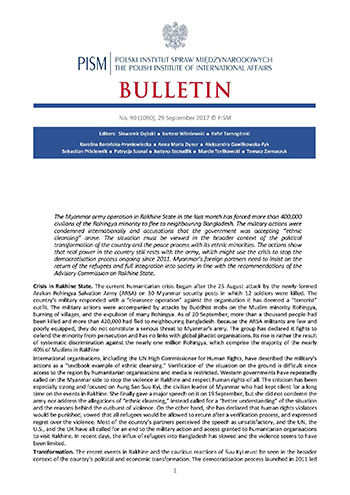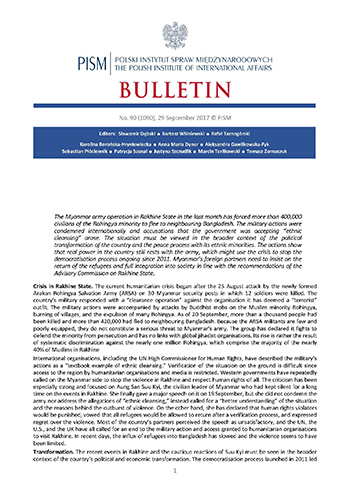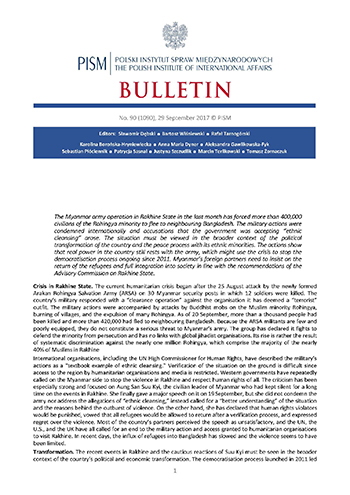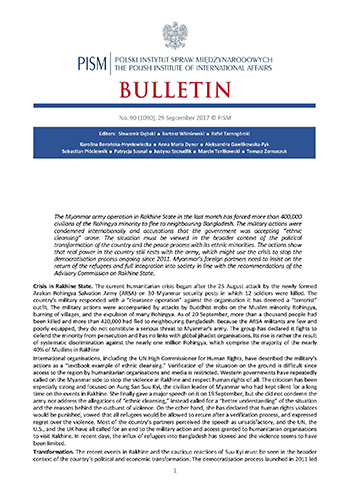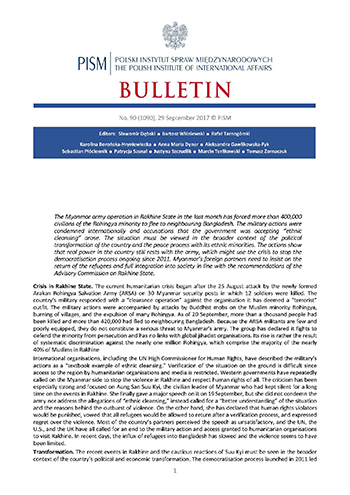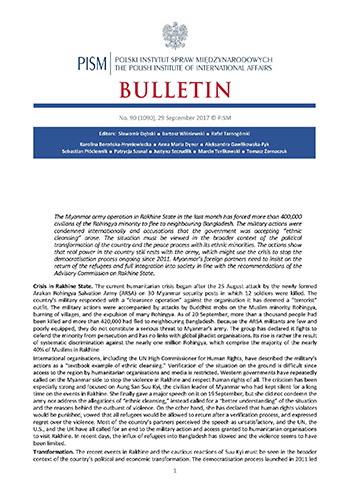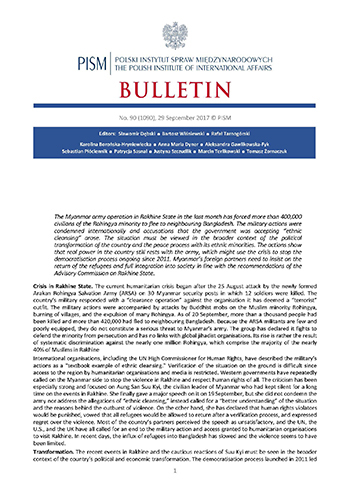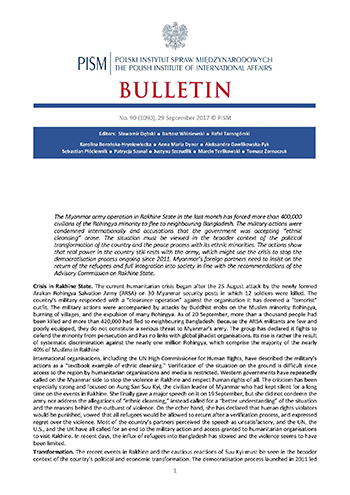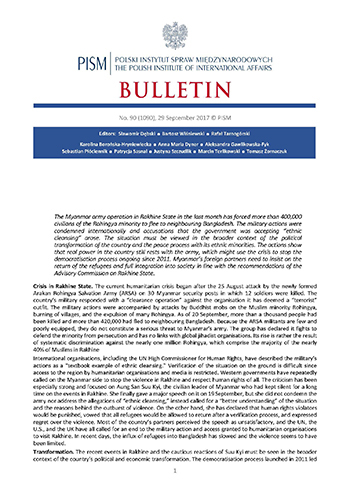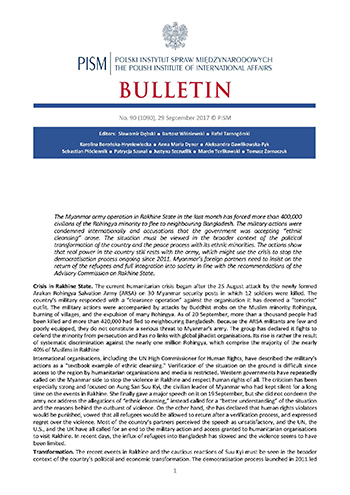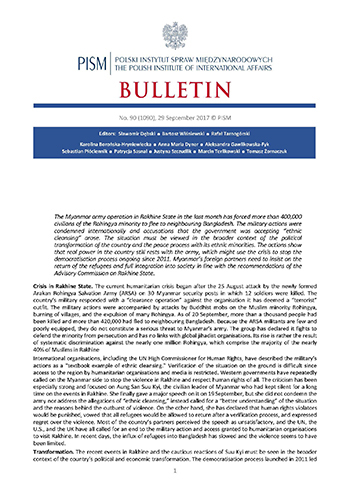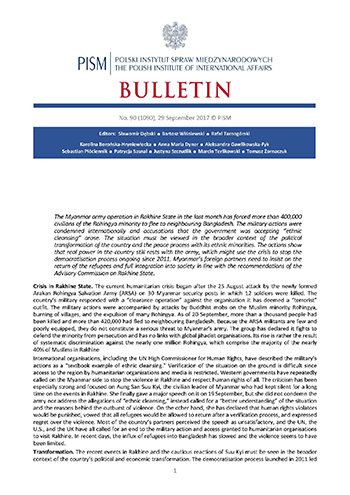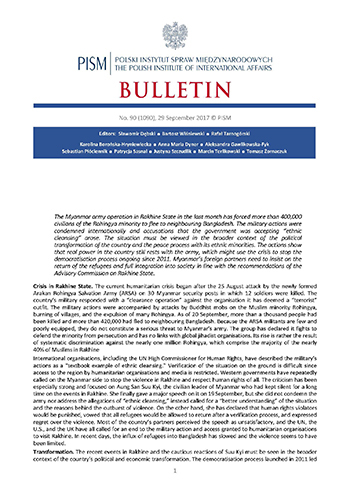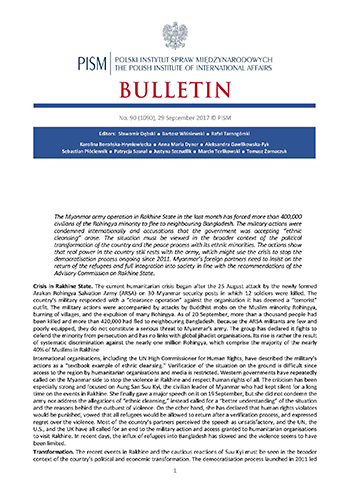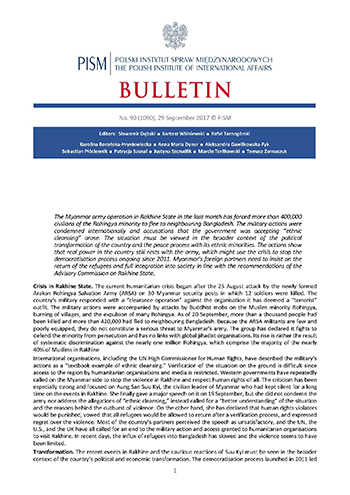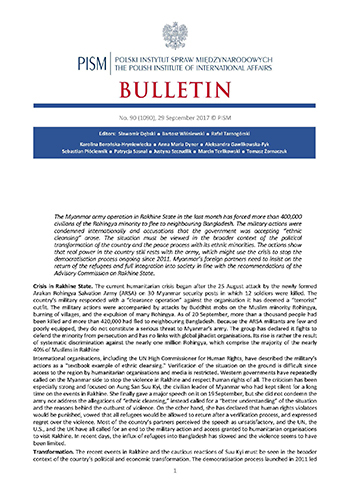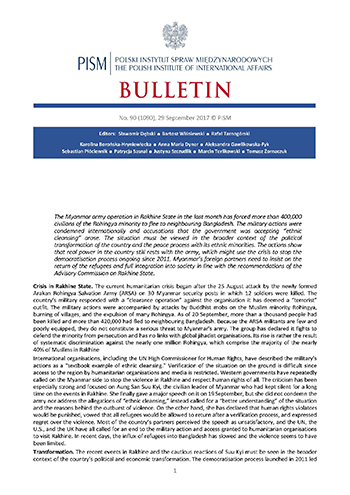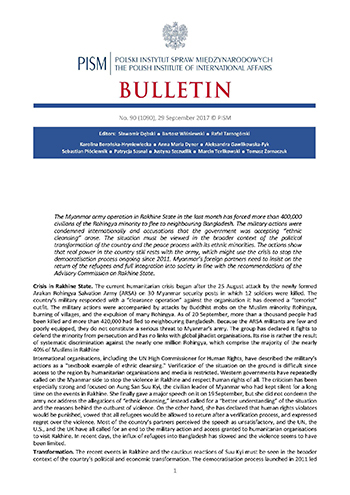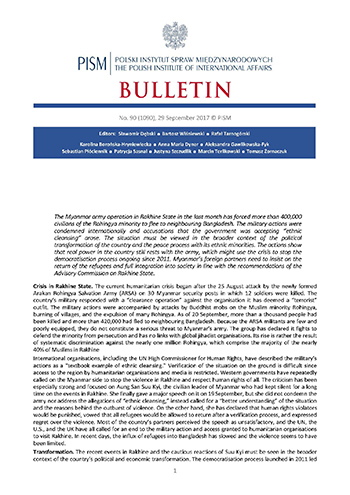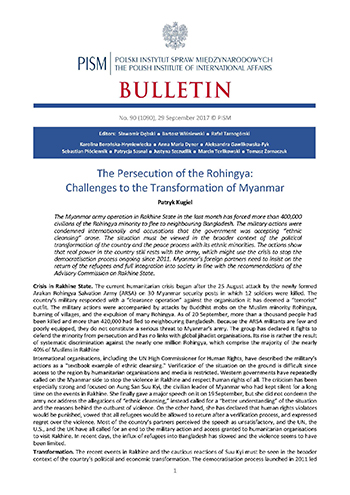
The Persecution of the Rohingya: Challenges to the Transformation of Myanmar
The Persecution of the Rohingya: Challenges to the Transformation of Myanmar
Keywords: Burma / Myanmar; Muslims
The Myanmar army operation in Rakhine State in the last month has forced more than 400,000 civilians of the Rohingya minority to flee to neighbouring Bangladesh. The military actions were condemned internationally and accusations that the government was accepting “ethnic cleansing” arose. The situation must be viewed in the broader context of the political transformation of the country and the peace process with its ethnic minorities. The actions show that real power in the country still rests with the army, which might use the crisis to stop the democratisation process ongoing since 2011. Myanmar’s foreign partners need to insist on the return of the refugees and full integration into society in line with the recommendations of the Advisory Commission on Rakhine State.
More...
